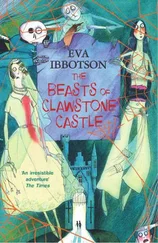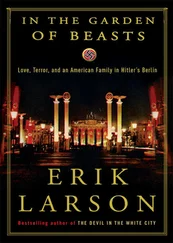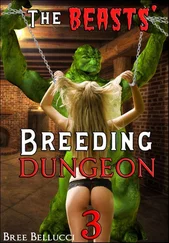“It’s nothing,” Meric said. “A lens.” The leo was close enough now for Meric to hear the faint whistle of air drawn regularly through his narrow nostrils; near enough to smell him. The smell, like the face, was alien, intensely real, and yet not anything he had expected: not monstrous.
“What did you want to see?” the leo said. At first Meric didn’t understand this as speech; for one thing, the leo’s voice was ridiculously small and broken, like an adolescent boy’s with a bad cold. For another, he realized he had expected the leo to speak to him in some alien tongue, some form of speech as strange and unique as the creature itself.
“You,” Meric said. “All of you.” He began rapidly to explain himself, about the Preserve, about the Mountain, but in the middle of it the leo walked away and sat down on the stone fence, out of earshot. With his gun across his knees, he looked down the slope to where the camp lay.
Down there, where there had been no one before, there were leos. One, in a long loose coat like an antique duster, its head wrapped in a kind of turban, squatted by the door of the roofless farmhouse. Others — small, young ones apparently — came and went from her (why did he suppose the turbaned one to be female?). The young ones would run away together, playing, wrestling, and then return to her again and sit. She was passive, as though unaware of them. She appeared to be looking some way off. Once she shaded her eyes. Meric looked where she looked, and saw others: two more in long coats, carrying rifles resting upward on their shoulders, and another, behind them, in something like ordinary clothes, dressed like the young one who sat near Meric. One of the tur baned ones carried a brace of rabbits.
The leo on the wall watched them intently. His nostrils now and again flared and his broad, veined ears turned toward them. If he was intended to be a guard, Meric thought, he wouldn’t be watching them; he’d be watching everything else. Not a guard, then. He seemed, rather, to be in some kind of vigil. Everything that happened down below absorbed him. But he made no move to go down and join them. He seemed to have forgotten Meric utterly.
Wondering whether it would be offensive to him, hoping it wouldn’t, and not knowing how to ask, Meric put the lens to his eye again. The female by the door sat unmoving but attentive while the others came into camp. When they had come close enough to greet, though, no greetings were exchanged. The male — the one not in a long coat — came and sat beside her, lowering his great shape gracefully to the ground. She lifted her arm and rested it on his shoulder. In a moment they had so composed themselves that they looked as though they might have been resting like that for hours.
Meric moved his field of view slightly. Someone could be just glimpsed in the broken doorway; appeared partly and went away; came out then and stood leaning against the jamb with arms crossed.
It wasn’t a leo, but a human woman.
Astonished, Meric studied her closely. She seemed at ease; the leos paid her no attention. Her dark hair was cut off short, and he could see that her clothes were strong but old and worn. She smiled at those coming in, though nothing was said; when the one with the rabbits dropped them, she knelt, drew a knife worn down to a mere streak, and began without hesitation to dress them. It was something Meric had never seen done, and he watched with fascination — the lens made it seem that he was watching something happening elsewhere, on another plane, or perhaps he couldn’t have watched as the girl expertly slit and then tugged away the skin, as though she were undressing a baby, who appeared skinny and red from within its bunting. Her fingers were soon bloodstained; she licked them casually.
The leo who sat near Meric on the wall stood. He seemed in the grip of a huge emotion. He started deliberately down the hill — they all seemed incapable of doing anything except deliberately — but then stopped. He stood motionless for a while, and then came back, sat again, and resumed his vigil.
Evening was coming on. The roofless house threw out a long tenuous shadow over the bent grass; the woods beyond had grown obscure. Now and again, clouds of starlings rose up and settled again to their disputatious rest. Their noise and the combing of the wind were all the sounds there were.
In an access of courage, feeling suddenly capable of it in the failing light, Meric stood. He was in their view now. One looked up, but started no alarm. Having then no choice — he had dived into their consciousness as a hesitant swimmer dives into cold water — he picked up his bag and started slowly but deliberately — in imitation, he realized, of their steady manner — down to the camp. He looked back at the leo on the wall; the leo watched but made no motion to follow or stop him.
Night within Candy’s Mountain was as filled with the constant sound of activity as was day. There was no time when the machine was shut down, for too much had to be done too continually if it was to stay alive at all. Great stretches of it were dark now; ways along halls were marked only by phosphorescent strips, signs, and symbols. Where more light was necessary, there was more light, but it was husbanded and doled nicely. Power in the Mountain was as exactly sufficient to needs, without waste, as was food.
Bree Landseer lay awake on her bedmat in the darkness. She needed no light and used none. She listened to the multiplex speak: the soughing of the hydraulic elevators, the crackle of a welding torch being used on the level above her, which now and then dropped a brief fiery cinder past her window. Voices: freak acoustics brought an occasional word to her, clear as those sparks, through the paper partitions and drapes of Blue that made her house: careful, brooms, novena, Wednesday, cup, never again, half more, if I could… Where were those conversations? Impossible to tell…
If there had ever been a human institution in which life had been lived as it was within the Mountain, it wasn’t any of the ones that the outside world compared it to. It wasn’t like a prison, or a huge, selfinvolved family, or a collective farm, or any kind of collective or commune. It wasn’t like a monastery, though Candy had known and revered Benedict’s harsh and efficient rule. Yet there was one institution it was like, perhaps: one of those ancient Irish religious communities that never heard of Benedict and only rarel\’ of Rome, great and continuously growing accretions of bishops, saints, monks, nuns, hermits, madmen, and plain people all clustered around some holy place and endlessly building themselves cells, chapels, protective walls, cathedrals, towers. Yes, it was like that. In the Mountain no one flogged himself daily or bathed cheerfully in brine for his soul’s good; but they had in the same way rejected the world for the sake of their souls, while not the less — no, all the more — loving and revering the world and all things that lived and flew and crawled in it. They were as various and as eccentric here, as solitary, as individual, and as alone before God as those old Irishmen in their beehive cells; and in the same way joined, too: joined in a joyful certainty that they were sinners who deserved their keep but no more. And as certain too that the world blessed them for renouncing the world. Which saint had it been, Bree wondered, who stood one morning in prayer with his arms outstretched, and a bird came and settled in his hand; and so as not to disturb her he went on praying; and so she made her nest in his hand; and so he stood and stood (supported by grace) till the bird had hatched and raised her young? Bree laughed to think of it. A miracle like that would suit her very well. She stretched her arms open across the rough cloth of the mat.
Читать дальше












